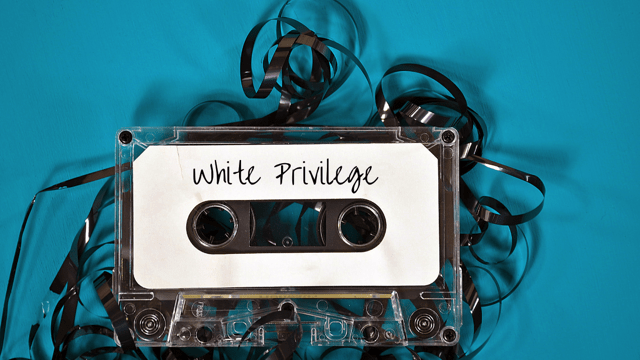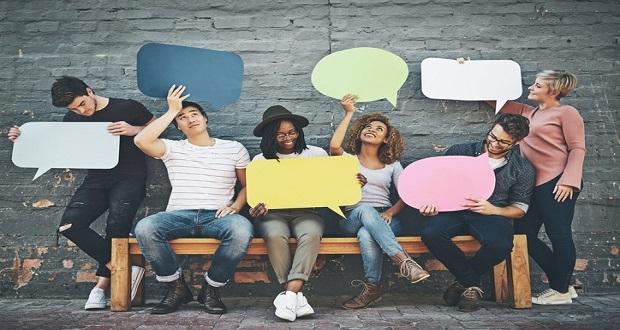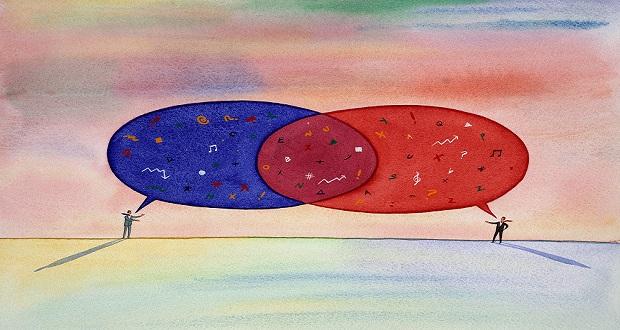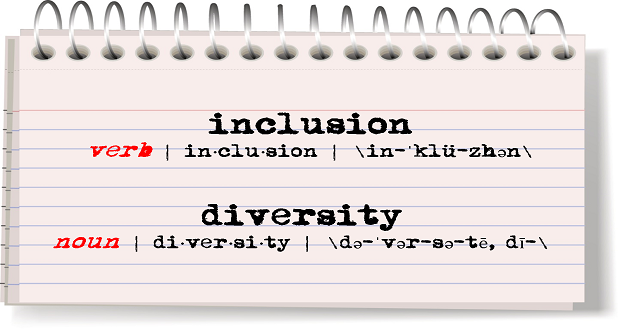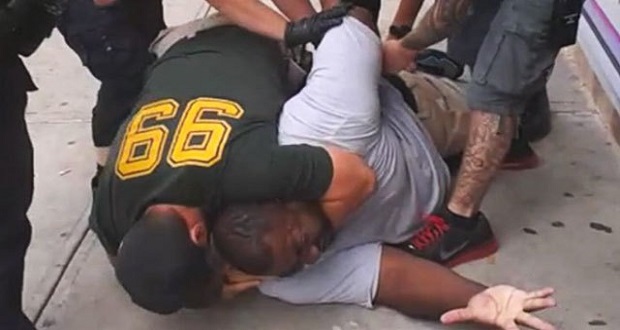Twenty-one-year-old me had no idea that I benefited from white privilege when I landed my first professional job. Of course, the 40 all-white trainees at our induction should have been a clue, as should the all-white training staff and leadership team. But I was ignorant then.
21-year-old me had no idea I benefited from white privilege in my first professional job. Of course, the 40 all-white trainees and all-white staff and leadership team should have been a clue. But I was ignorant then. Click To TweetIgnorance is the first of four stages I’ve passed through to unravel my white privilege. The other three are: awareness, acceptance, and deconstruction.
I’ve passed through four stages to unravel my white privilege: ignorance, awareness, acceptance, and deconstruction. Click To TweetAll of us can see systemic racism and white privilege for what they are: oppressive forces. Forces that we did not ask for but can change. As white people, we have more social power within this system. And we can choose to use this power for good. But before we do so, we must unravel our white privilege.
I’m sharing my journey so it might inspire others to follow a similar path. This road has been challenging, but the rewards are so worth it.
Stage 1: Ignorance
The first stage of my journey was ignorance. Ignorance of white privilege. Some ignorance of systemic racism, too.
I didn’t give white privilege a thought for most of my life. It didn’t cross my mind. Growing up in the 70s and 80s among other white people, race was something we never discussed.
As a child, my family moved around, and I never worried that my race would prevent me from fitting in. My education was founded on discoveries that white people had taken credit for, and it didn’t occur to me to question this. My teachers and mentors were all white, and I accepted this as normal.
As I got older, I knew that they could do something with my hair if I went to a new hairdresser. When I read stories to my children, I knew they’d contain white characters. Everywhere I went, I saw white politicians, businesspeople, and community leaders. On top of that, TV shows, advertisements, and movies had all-white casts. My white skin was reflected back at me at every turn. White was the default setting, and I thought nothing of it.
Everywhere I went, I saw white politicians and businesspeople. TV shows and movies had all-white casts. My white skin was reflected back at me at every turn. White was the default setting, and I thought nothing of it. Click To TweetI was the epitome of white privilege. Ignorant and indifferent.
Stage 2: Awareness
The second stage of unraveling my white privilege was awareness. I was recognizing and becoming aware.
This didn’t happen overnight. I didn’t have a sudden awakening or an epiphany. My journey was a slow, meandering one.
It began with body positivity, moved through feminism, and toward internalized misogyny. Then onto racism before finally landing on white privilege.
Learning about internalized misogyny was tough. Internalized misogyny is the sexist behavior and attitudes that women enact on themselves, other girls, women, femmes, and gender non-conforming people. It’s self-policing, and incredibly harmful.
The realization that I had oppressed both myself and others was distressing.
But I was inspired by kind and caring people online. Their words helped me push through my discomfort.
So, when my journey eventually led me to reflect on racism, I was primed and ready to receive the message. The idea that I harbored racist beliefs alongside my internalized misogyny did not come as a shock. It made sense. If I had internalized misogynistic beliefs that harmed me, then, of course, I had racist thoughts that hurt others.
Finally, I landed on white privilege, the flip side of the racism coin.
The first time I heard “white privilege,” I’ll confess, I bristled. I immediately thought, “How dare you! I’m not privileged.” I felt like I was being accused of being wealthy, posh, or cruising through life … as if I was being dismissed, minimized, or my achievements were being underestimated and devalued.
The first time I heard 'white privilege,' I confess I felt my achievements were underestimated and devalued. Me, me, me. I made it all about me and what I was being denied, in classic privileged fashion. Click To TweetMe, me, me. I made it all about me and what I was being denied, in classic privileged fashion.
Stage 3: Acceptance
The third stage was accepting. Accepting that I had white privilege and that I was part of the problem.
Moving from awareness to acceptance was definitely the most challenging part. Becoming aware of white privilege was uncomfortable. However, accepting my part in it was a different level altogether.
Becoming aware of white privilege was uncomfortable. Up until then, I’d seen myself as a woman in patriarchy. I was the victim. My voice had been suppressed, my rights curtailed. How dare they? Click To TweetUp until then, I’d seen myself as a woman in patriarchy. My oppression had filled me with righteous indignation. I was the victim. Society the enemy. My voice had been suppressed, my rights curtailed. How dare they?
Understanding white privilege took time. Gradually, I learned that my whiteness afforded me advantages that I didn’t earn. I became aware that my skin color made my life easier and that this was a grossly unfair system.
Now the tables had turned. I was the oppressor.
Initially, this seemed personal. It felt as if I was being held responsible for all racism ever. That I was the bad guy in society, I was the enemy. So, my first reaction was visceral — it was one of self-disgust, guilt, and deep, deep shame.
Because of this, accepting that I was part of the oppressor group was the hardest lesson.
But as I learned more, I realized that it wasn’t about me. It was about the system in which we all lived. A system that’s poisoned our minds against ourselves and each other. One that I had unintentionally upheld.
I clung to the word “unintentionally.” The idea that I was unintentionally upholding the system comforted me and helped me process my guilt and shame. I realized that, yes, I am part of the oppressor group, but I have the power to change that. Not by changing my skin color but by changing the way I think.
I clung to the word 'unintentionally.' The idea that I was unintentionally upholding the system helped me process my guilt and shame. I realized that I am part of the oppressor group, but I have power to change that. Click To TweetStage 4: Deconstruction
The final stage is where I live now, in deconstruction. This stage is about dismantling and unravelling my white privilege and my part in systemic racism. I will spend the rest of my life in this stage.
Changing the way I think started with changing how I see white privilege. You see, it’s not about being wealthy, posh, or leading a charmed life. It’s not about being solely responsible for systemic racism. The fact is, if you have white skin, then you have white privilege. This is true regardless of your wealth, class, or gender.
White privilege is simply this: A bubble of protection from racism.
Being protected from racism means that we don’t experience it, so changing the way we view white privilege is critical. Seeing white privilege as the absence of racism allows us to recognize it as a systemic problem. And how, as flawed individuals, we have unintentionally upheld this system.
White privilege is a bubble of protection from racism. Being protected from racism means that we don’t experience it, so changing the way we view white privilege is critical. Click To TweetBut, the great news is that we have the power to change it.
The first step is moving out of ignorance and into awareness. Once we’ve become aware of our privilege, we must accept it as fact. Only then can we embrace its deconstruction.
Moving Forward
Are you ready to unravel your white privilege? Start by analyzing where you are right now. Are you ignorant, aware, accepting, or deconstructing? While none of us has chosen this system, we can do our part in dismantling it.
The truth is, each of us is only responsible for ourselves. However, we have the opportunity to examine our part in this. We are not responsible for the past, but we can choose to take responsibility for the future. Let’s make that choice.
We are not responsible for the past, but we can choose to take responsibility for the future. Click To Tweet
